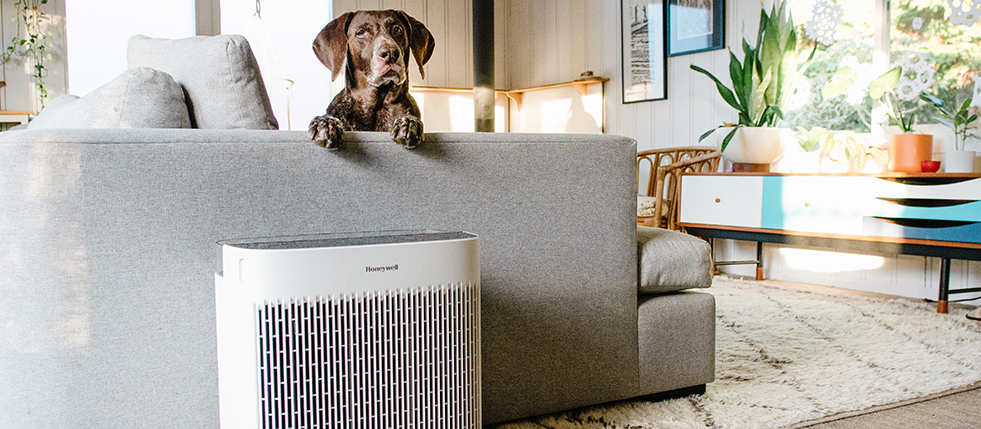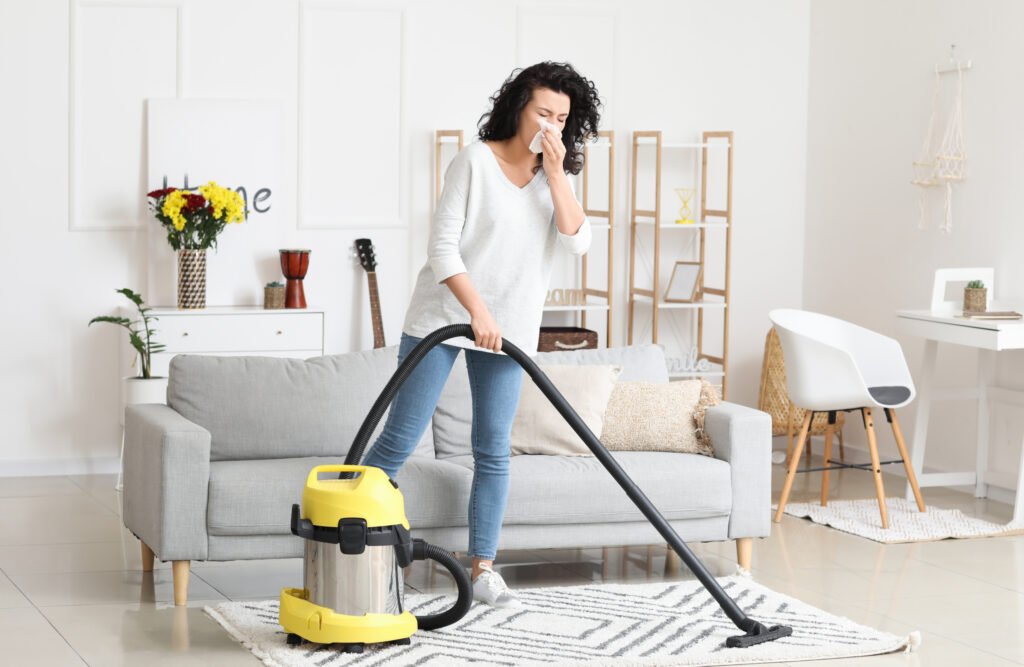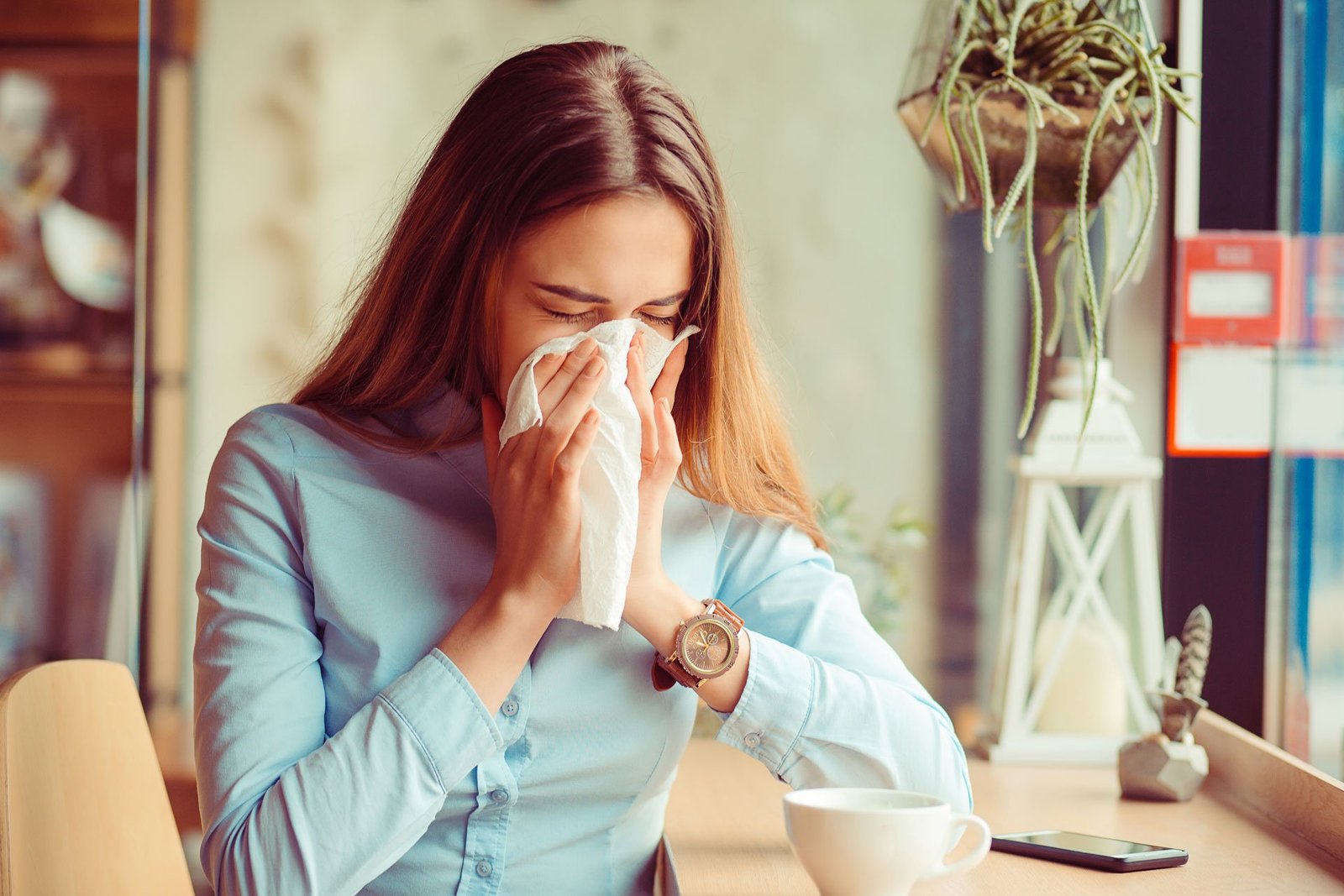Poor indoor air quality as a result of air pollution can elevate allergic reactions in persons suffering from Asthma and other respiratory conditions. According to research conducted by the Asthma and Allergy Foundation of America (AAFA), more than 80 million Americans suffer from various types of allergies every year. Since air purifiers are effective in cleaning indoor air, one of the questions many individuals ask is; do air purifiers help with allergies?
In this guide, we are going to demystify this query to help you make a better decision when shopping for an indoor air-cleaning device that can ease common allergic symptoms.
Table of Contents
What is an allergy?
An allergy is a reaction that occurs when your body’s immune system is exposed to a foreign substance normally known as an allergen. When you inhale airborne allergens, an allergic reaction will occur in your respiratory system leading to coughing, nasal congestion, scratchy throat, sneezing, runny nose, itchy eyes, rashes, and even asthma attacks in severe cases.
Airborne allergens such as fine dust, pollen, mold spores, dust mites, pet dander, rodent urine, smoke, and odors are common triggers for allergies.

Do air purifiers work for allergies?
Yes. Air purifiers help reduce exposure to allergic reactions by trapping and removing most of the common airborne allergens from your indoor air. Allergens such as pollen, dust, pet dander, smoke, and smelly chemical odors are blown into your home interiors or find themselves in your house through other means.
They can accumulate on surfaces such as on your bedding, couch, carpets, and upholstery. The lighter ones float in your indoor air thus, polluting your indoor air.
Once your indoor air is polluted, you will unknowingly inhale these allergens and you will immediately notice an increase in allergy symptoms. To improve your indoor air quality, you will need to buy an air purifier device that can clean and remove all the prevalent airborne allergens.
There are different types of air purifiers for allergies on the market to choose from. They differ based on their air purification technology, size, and functionality. Filter-based air purifiers with True-HEPA air filters are the most recommended when it comes to removing allergens from your indoor air over ionic air purifiers.
In most cases, the best air purifiers for allergies use a combination of various air purification technologies to trap and remove most of the prevalent airborne allergens that trigger allergic reactions.

How do filter-based air purifiers help with allergies?
Filter-based air purifiers with HEPA or True HEPA air filters are the most effective in eliminating most of the prevalent indoor air pollutants that cause allergies. Air purifiers with True HEPA air filters have the potential of trapping and removing 99.99% of airborne allergens as small as 0.3 microns.
For your air purifier to work effectively in reducing allergy symptoms, ensure it has a Clean Air Delivery Rate (CADR) that matches your room size. The CADR ratings are calculated based on the units of cubic feet per minute. They indicate how fast an air purifier can lower indoor air pollutant levels compared to the levels that they could have reached if you added completely clean air into the room.
The higher the CADR value in an air purifier model (i.e. 400-450 cubic per minute), the lesser the time it will take to remove airborne allergens floating in your indoor air.
Air purifier models have ideal room size ratings such as 200, 300, or 400 sq. feet and this can help you pick the perfect one that matches your indoor room size. A portable air purifier should be placed in the room where your loved ones spend most of their time for effective airborne allergens control. Most air purifiers for allergies have specific automated settings for allergens.
It’s worth noting that CADR levels are measured when an air purifier is running at the highest possible fan speed and they tend to release some noise. If you feel the fan noise is annoying, you can opt to lower the air purifier fan running speed although it will take a longer time to clean the indoor air.
On the other hand, if you are using a Heating, Ventilation, and Air Conditioning (HVAC) system, consider replacing air filters as recommended by the manufacturer to improve its efficiency in helping with allergies.
Do air purifiers help with allergies FAQs
-
Can an air purifier make allergies worse?
Although a majority of air purifier models are effective in helping with allergies by trapping and removing common airborne allergens from the indoor air, the use of ionic air purifiers can make allergies even worse. This is because ionic electrostatic air cleaners release Ozone in the indoor air which is an irritant that ends up triggering an allergic reaction.
-
Should I buy a portable air purifier or a whole-room air purifier?
Both portable air purifiers and whole-house air purifiers are great for helping with allergies. However, the choice of which one to buy depends on several factors such as room size and mobility. Personal air purifiers are small, affordable, and easy to carry around even in your bedrooms. If your room is small and the level of air pollution is moderate, portable air purifiers are the best option.
Whole-house air purifiers are perfect for removing airborne allergens in larger rooms. However, they are expensive and not portable. If there are many rooms or there is a higher number of people staying in your house, a whole-house air purifier (HVAC) will help in reducing allergy symptoms.
-
How long should I run the air purifier?
The ideal time that you need to run an air purifier to remove airborne allergens to ease allergy symptoms will depend on the Clean Air Delivery Rate (CADR) and the size of the room. If you use a small air purifier to clean a bigger room, it will take a longer time to remove the most common airborne allergens such as dust, pollen, mold, smoke, odors, and fragrances.
If you are not in your home most of the time or you keep moving from one place to another, you can use a portable air purifier on a need basis. For whole-house air purifiers, you can run them continuously so that they can be able to reach every spot in your home.
-
How can I monitor indoor air quality?
Monitoring your indoor air quality around the clock ensures you can get notified anytime airborne allergens and other indoor air pollutants build up. The best way to monitor the quality of your indoor is by purchasing an air quality monitor device. Luckily, there are many air quality models available in a store near you at affordable prices.
Once you get information about your indoor air quality and the type of airborne allergens present, you will be in a better position to determine whether you need a portable air purifier or a whole-house air purifier to help you with allergies.
Other methods of improving indoor air quality to help with allergies
If you can’t manage to purchase a suitable air purifier for allergies at the moment, there are other methods that you can use to improve the quality of your indoor air and reduce allergy symptoms. Some of the simple measures that you can undertake to reduce the amount of airborne allergens in your indoor air include;
- Washing your pet and their bedding outside to reduce the accumulation of pet dander.
- Avoid smoking indoors.
- If you have carpets and door mats, vacuum them regularly or consider replacing them with hardwood floors.
- Maintain the right humidity levels in your home as the too humid environment is a fertile ground for allergens such as mold and bacteria to grow and spread. Consider buying a humidifier machine if your home has a moisture problem.
- Dust off your shoes and clothes before entering your home or leave them at the door entrance to limit the spread of dust and pollen allergens.
- De-clutter and deep clean your bathroom, basement, and other corners in your house to ensure there is no allergen buildup such as molds and dust particles.

Do air purifiers help with allergies; Wrapping up
Air purifiers clean your indoor air by trapping and removing common airborne allergens such as dust, pollen, pet dander, and mold spores. Therefore, if your allergy symptoms worsen when you are indoors, it means that there is a high prevalence of allergens. By buying the best air purifier for allergies, you create an effective defense mechanism that keeps your indoor air clean. The best air purifiers for allergies use multiple air purification technologies to effectively remove airborne allergens.
We hope that our air purifier for allergy guide has helped you debunk the question of; do air purifiers help with allergies. By understanding how you can keep your indoor air clean, you can reduce allergy symptoms before they can get worse for a better quality of life.

